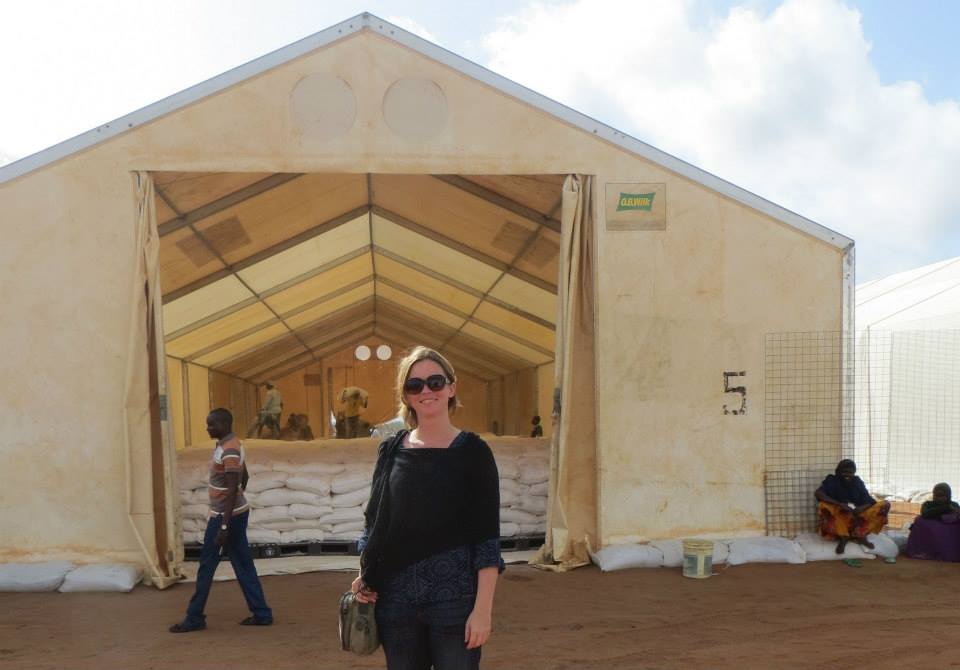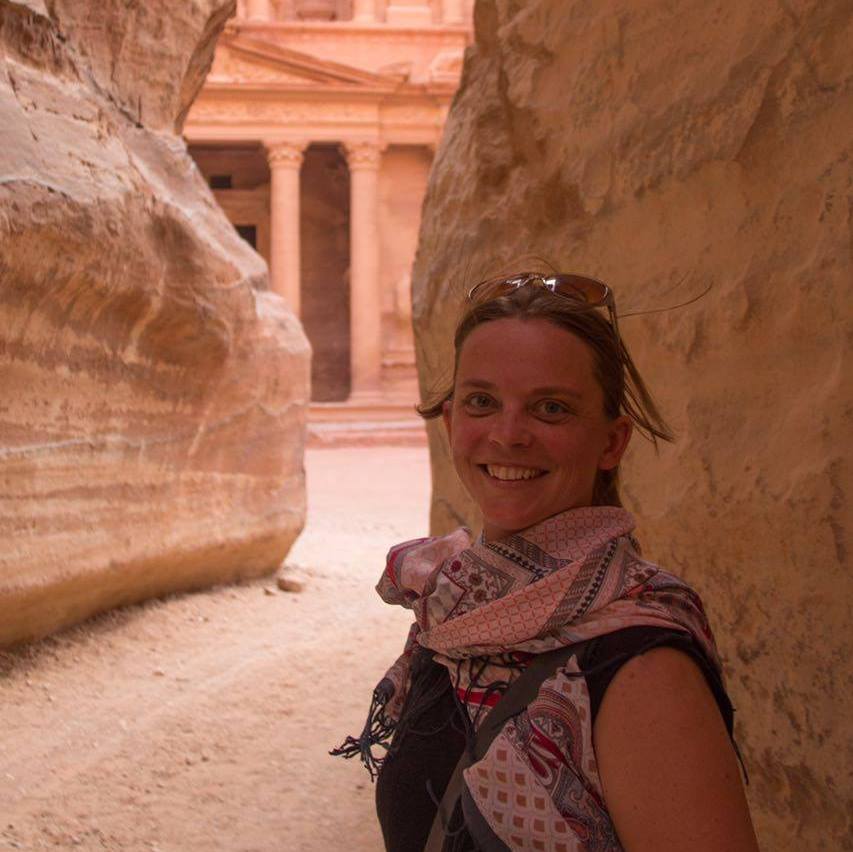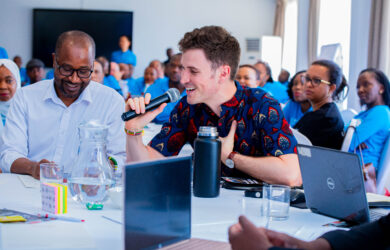
Dorien Braam's PhD investigates whether displacement puts communities at greater risk of zoonotic disease transmission.
Research is available on health in displaced populations, but not related to the role of livestock.
Dorien Braam
Dorien Braam has had a wide-ranging international career. From a young age, she was interested in veterinary medicine and animal welfare, volunteering in the sector before qualifying as an architect. However, most of her recent career has been spent in a range of development and humanitarian roles.
Now, for her PhD, she has brought together her childhood passion for animals and her expertise in human and animal displacement.
Her research focuses on communities in Pakistan who have been forced to move due to disasters caused by natural hazards. She will determine whether displacement puts them at greater risk of zoonotic disease transmission.
Dorien conducted a scoping trip to Pakistan earlier this year which resulted in a cooperative agreement with the Sindh government, meaning any data collected will be used to support policy development.
Dorien [2018] plans to return to Pakistan in October to interview experts in animal health, human health and disaster management, and speak to communities regarding livestock movements to assess their vulnerability to zoonotic disease transmission. “Some people may live in closer proximity to their animals or the opposite as a result of displacement,” she says. “There is not much research in this area yet,” she adds. “Research is available on health in displaced populations, but not related to the role of livestock.”
Early years
Dorien was born in Utrecht and grew up in Ede in the Netherlands. She developed an early interest in animals, volunteering at a local animal shelter from a young age. Having considered veterinary school, she realised she wanted to be involved in the sector in a different capacity and spent a gap year backpacking around Australia, which was to prove a turning point in her life, introducing her to other cultures and opening up a whole world of possibilities and places to go.
Architecture
Dorien returned to the Netherlands to study architecture. She did a BSc/MSc course which lasted six years, including two voluntary internships and a semester at the National University of Singapore. During her course Dorien realised that, while she loved designing, she had ethical concerns with constructing new buildings for commercial purposes.
At the end of her course she accepted a job offer at an architecture firm in Beijing, where she won the first prize in a design competition as the lead architect on a design team. She then worked in Hong Kong, designing public buildings in India, China and Malaysia, ultimately resigning to pursue a career in the non-profit sector instead.
Development work
Keen to gain working experience in Africa, she applied for a position as business development and marketing trainer in small solar home systems in Ethiopia. The work involved travelling across the country by public transport and providing workshops to small business owners, students and farmers, to grow the country’s market in solar solutions. Following her six-month contract she moved to London, where she worked as research intern at the Netherlands Embassy and subsequently joined the UN Office on Drugs and Crime as an intern, first at the Southeast Asia and Pacific desk and subsequently the Afghanistan programme in Vienna.
Returning as a consultant developing indicators for Afghanistan’s National Drug Control Strategy, which involved missions to Kabul, she was keen to move to a field office in the region. She took up a post in Pakistan in June 2011 and stayed there for two and a half years, conducting research and managing programmes in the criminal justice and law enforcement sector. She loved the job – and Pakistan. “It’s such a welcoming, hospitable, beautiful and complex country,” she says. Her work included conducting baseline assessments on money laundering, precursor trafficking and flood damage. While working on the first ever national household drug use survey she travelled extensively throughout the country.
Dorien remained in Pakistan until December 2013 when she returned home, eager to pursue new challenges. She started working as Senior Policy Officer for Somalia at the Dutch embassy based in Nairobi in February 2014, focusing on humanitarian issues in the region. Her job involved working with NGOs and private partners on political issues while travelling regularly to Somalia. She returned to the UN Office on Drugs and Crime as East Africa regional programme coordinator cybercrime, subsequently moving to Thailand in a regional monitoring and evaluation role.
Consultancy work and PhD
On the side of her consultancy work for UNODC, Dorien co-founded a consultancy company in November 2013. One of the first assignments was a research project on disaster displacement and community resilience for the Norwegian Refugee Council, based on fieldwork in Afghanistan and India. Other projects included work on labour rights and industrial relations for the International Labour Organisation [ILO] in Ethiopia and work on migrant child labour for the International Organization for Migration (IOM). At the end of her contract in Thailand, she decided to return to the Netherlands to focus on short term consultancies and humanitarian cluster coordination, for which she travelled to Sri Lanka following the flood and landslide disaster in May 2017. Following a year in the Hague, working on projects for Oxfam Greece, ILO Indonesia and GIZ Jordan, Dorien reflected on her long-term future and, having considered a PhD in the past, she felt now was the right time to propose a project combining her interests in animals and displacement. This followed the completion of an online second MSc in International Animal Health at Edinburgh University for which she studied alongside her day job.
Professor James Wood, the Head of the Department of Veterinary Science at the University of Cambridge responded positively to her research proposal, and currently supervises her project which aims to positively impact humanitarian and development responses to the increasing risks of displacement and infectious disease transmission.

Dorien Braam
- Alumni
- Netherlands
- 2018 PhD Veterinary Medicine
- St John's College
Having worked in a variety of roles across Asia and eastern Africa with the UN, INGO's and government focusing on disaster displacement, human rights and shelter, I returned to academia via a MSc in International Animal Health at the University of Edinburgh. My thesis research on ‘Animal health programming in humanitarian and development assistance in Somalia’ showed the gaps and need for high quality research and critical assessment to improve the evidence base for policy and program development. For my PhD in Veterinary Medicine I will study the prevalence of zoonoses - diseases transmitted between animals and humans - in displaced populations, addressing some of the most pressing global challenges of the next decade: climate change, displacement and emerging infectious diseases. Disease transmission between wildlife and livestock, the increased risk of zoonoses in areas where people and animals with weakened immune systems live closely together, and the emergence of infectious diseases among naive host communities are areas that need to be increasingly researched. Gaining a better understanding of disease prevalence and dynamics, control and prevention will improve the well-being of both humans and animals, with the aim to influence and improve institutional responses. I am incredibly honored that I can pursue this important field of study at the University of Cambridge with the support of the Gates Scholarship, and look forward to becoming a part of the community.
Previous Education
Technische Universiteit Delft
The University of Edinburgh












